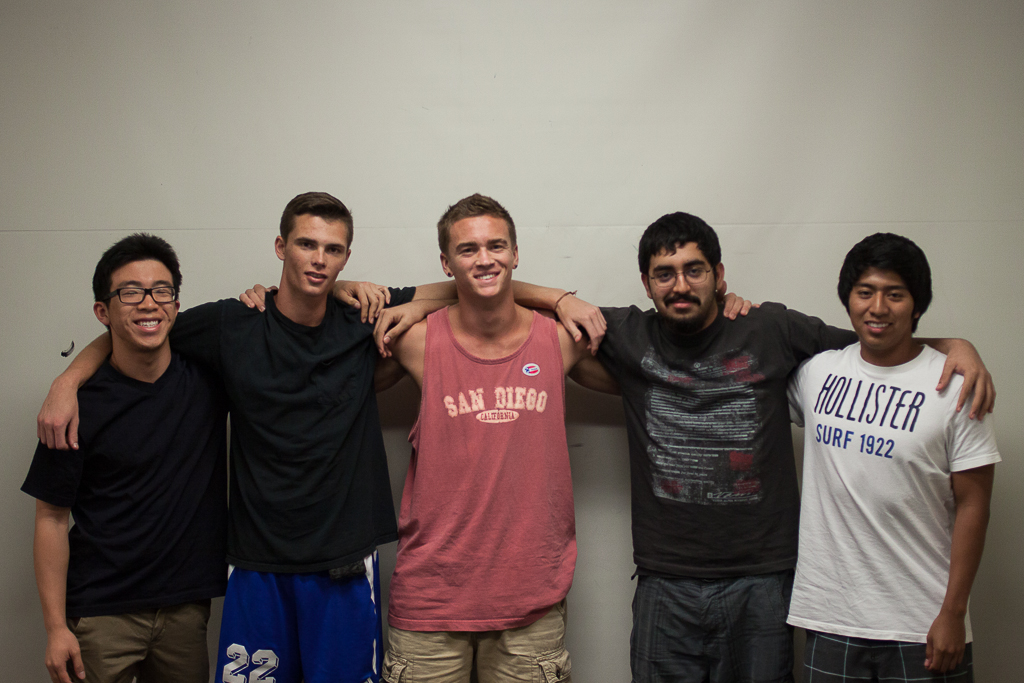
The issue of affirmative action was brought before the Supreme Court for the fourth time on Oct. 11. This particular case has the potential to change schools’ admissions policies across the country, according to the Advocate news publication.
The Supreme Court could either uphold the University of Texas’ policy on affirmative action, reject it in part or make the decision to ban the consideration of race in college admissions, according to the Advocate.
Affirmative action doesn't factor in Biola standards for admission
As a private university, Biola is not under any restrictions when it comes to affirmative action, according to senior director of undergraduate admissions Andre Stephens.
For public schools, though, setting goals for the growth of diversity is not against the law. Affirmative action is deemed legitimate if the college is not turning an applicant away out of discrimination, according to U.S. Legal.
“We have standards for admissions for everyone,” Stephens said.
He listed several standards like GPA, SAT scores, letters of reference and being a Christian.
“But of course there’s no separate standard for students of color or athletes or musicians. Everyone has to meet those standards,” he said.
No specific scholarships for specific ethnicities
Unlike at a state school, Biola does not single out different ethnicities with specific scholarships. For instance, the Leadership Engaging Advancing Diversity scholarship Biola offers can be up to $6,500 a year for students who exemplify a strong understanding of ethnicity, while demonstrating leadership in raising awareness or participating in ethnic activities.
“[The LEAD scholarship] is not exclusive to students of color; it could be anyone,” Stephens said.
Fifty-eight percent of enrolled students identified as “white,” according to the registrar’s online enrollment summary. Campus staff believe Biola still has room to grow.
“Research has shown that it helps students learn and thrive more in that kind of [diverse] environment,” Stephens said. “Like iron sharpening iron, we learn from one another.”
The importance of multi-ethnic representation
Tamra Newman, associate director of Multi-Ethnic Programs, also stressed the importance of different perspectives brought to campus by a diverse student body.
“We aren't just looking at just skin color for people, we are looking at diversity across the board,” she said. “For example, I don't think our campus is traditionally welcoming to non-traditional or adult students, and that’s part of diversity. We are looking for students who come from different backgrounds and who have different lenses.”
Through outreach, volunteers and Multi-Ethnic Programs, Biola is working toward attracting underrepresented applicants. Stephens said teams of student volunteers go to churches and schools in the diverse surrounding communities to lead worship or share their testimonies, encouraging people to check out Biola. A specific multi-ethnic outreach counselor, Amanda Fox, assistant director of admissions, works with local prospective students.
Despite the outreach, many students of color struggle to fit in because there is a dominant culture at Biola, Glen Kinoshita, director of Multi-Ethnic Programs explained.
The role of Multi-Ethnic Programs at Biola
“They may not feel comfortable [or] that they can relate,” Kinoshita said.
Freshman Kathy Chiang, a math secondary education major, is an American who grew up in Taiwan.
“I don’t really see myself as the minority,” she said. “For me, it’s more about the differences between cultures.”
Even though she went to an American school, Chiang said her peers in Taiwan were still immersed in Asian culture.
“Here, people are Americanized,” she said.
Making students of all backgrounds feel comfortable at Biola is where Multi-Ethnic Programs comes in.
“One miscommunication about Multi-Ethnic Programs is that it’s supposed to serve ‘multi-ethnic,’ and that means non-white, students. Thats not true,” Newman said. “Diverse ethnic backgrounds including white culture are very much a part of that. Multi-Ethnic Programs services all students.”
"I would not be the same person I am today."
She explained that Multi-Ethnic Programs are very intentional in celebrating cultural identity.
When asked how Multi-Ethnic Programs have changed her, 2011 alumna Stephanie Dailey laughed.
“Is it too dramatic to say it changed my life? [Without Multi-Ethnic Programs] I would not be the same person that I am today,” she went on to say.
She said that she came to Biola imposing her own norms onto others, but through Multi-Ethnic Programs she gained perspectives she otherwise would have never had.
“I feel more equipped to do what the university says they are training and equipping us to do, which is to reach the world for the Lord Jesus Christ,” Dailey said.
Staying rooted in the kingdom
Kinoshita echoed this statement on diversity.
“It enhances the learning environment, but I think the most important thing is, do we mirror God’s kingdom on earth?” he said. “I think we need to root what we do in the kingdom … and that's what we have in our mission statement.”
Affirmative action began as an equal employment opportunity for all people — despite gender, race, ethnicity, color or nationality. In 1978, the Supreme Court decided that universities were not allowed to set quotas for the diversity at their school. Since this act, scholars in leadership positions have always been questioning the balance of diversity.







